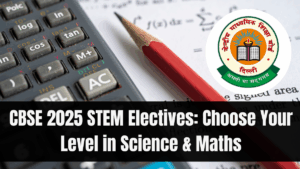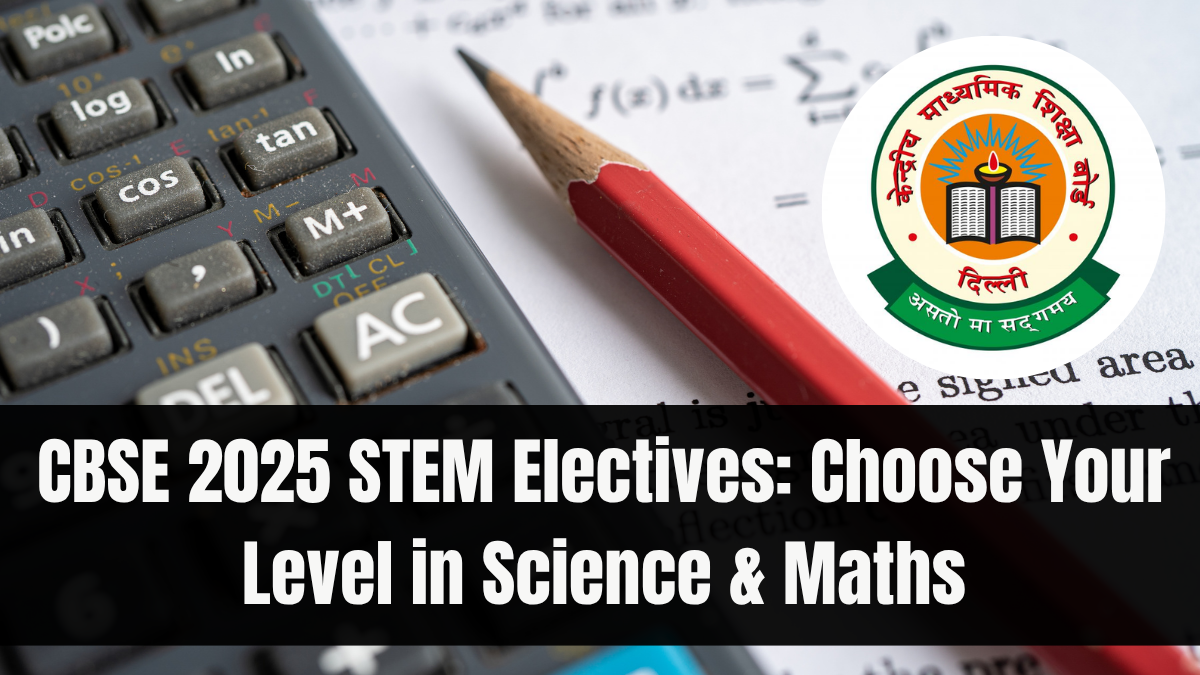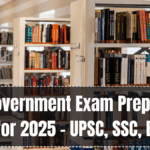In a groundbreaking shift toward student-centered education, the CBSE STEM Electives Option Classes XI–XII initiative is transforming how Science and Maths are taught at the senior secondary level. Starting from the 2025–26 academic year, students in Classes XI and XII can now choose between standard and advanced levels of STEM subjects. Aligned with the National Education Policy (NEP) 2020, this two-tier elective model empowers learners to customize their academic paths based on their aptitude, interest, and future career goals—without being forced into a one-size-fits-all curriculum.

What Is the Two-Tier STEM Elective System?
CBSE’s latest reform divides core STEM subjects—Physics, Chemistry, Biology, and Mathematics—into two levels:
-
Standard Level (SL): Conceptual, foundational, and application-focused
-
Advanced Level (AL): Rigorously academic, theory-heavy, and designed for competitive exam aspirants
This means a student aiming for NEET or JEE can opt for Advanced Math and Physics, while another student interested in science-related careers like nutrition, psychology, or environmental studies can choose the Standard level for a more balanced academic load.
Why Has CBSE Introduced This Change?
The CBSE STEM Electives Option Classes XI–XII is aimed at:
-
Reducing academic pressure and performance anxiety
-
Encouraging diverse career choices beyond medicine and engineering
-
Allowing students to explore interdisciplinary and creative fields like design, biotech, or data journalism
-
Aligning school curricula with the flexibility seen in global education models like the IB and Cambridge systems
This change marks a cultural shift—from memorization-driven learning to interest-based exploration.
Subject Choices and Evaluation Structure
Here’s how the new elective framework works:
-
Students can mix and match levels (e.g., Advanced Biology + Standard Maths)
-
Separate syllabi and textbooks are provided for each level
-
Standard Level papers focus on applied understanding and internal assessments
-
Advanced Level papers include extended theory, numerical practice, and lab rigor
-
Both levels are equally recognized in CBSE marksheets and UGC equivalency
Evaluation is done via differentiated board exam question papers, ensuring fairness across difficulty levels.
Impact on Career Paths and Competitive Exams
This initiative opens doors for a wider variety of career paths. Examples include:
-
Students choosing Standard Maths can pursue careers in media, psychology, or life sciences without struggling through higher-order calculus
-
Those taking Advanced STEM subjects are fully prepared for JEE, NEET, CUET (Science), and other entrance tests
-
A blended option allows for STEM + humanities or commerce combinations, enabling fields like computational social science, eco-statistics, or scientific communication
Universities and professional colleges are being advised to update their admission guidelines to reflect the equivalence of both levels.
School Support and Curriculum Integration
To support the rollout, CBSE is offering:
-
Detailed syllabus breakdowns and learning outcomes for both levels
-
Sample papers, internal assessments, and lab manuals tailored to each stream
-
Online and in-person teacher training workshops
-
Parent-student orientation guides to help make informed subject choices
Schools are encouraged to hold STEM orientation weeks before subject selection to give students clarity on future academic paths.
FAQs
What is the CBSE STEM Electives Option for Classes XI–XII?
It’s a curriculum model allowing students to choose between Standard and Advanced levels for Science and Maths subjects starting in 2025.
Can students combine different levels across subjects?
Yes. A student can opt for Advanced Physics and Standard Chemistry, depending on their aptitude and career goals.
Will colleges accept Standard Level subjects?
Yes. CBSE has ensured that both Standard and Advanced levels are fully recognized for university admissions. Colleges will specify which level they require.
Are both levels equally difficult?
No. Advanced level includes higher-order theory and numerical problem-solving, while Standard level focuses on application, understanding, and real-life integration.
Will teachers be trained for this change?
Yes. CBSE is conducting structured training programs, workshops, and providing learning materials to help teachers deliver both streams effectively.
Click here to know more.




